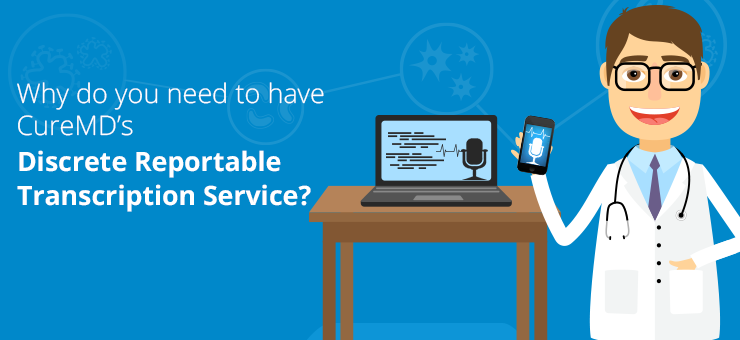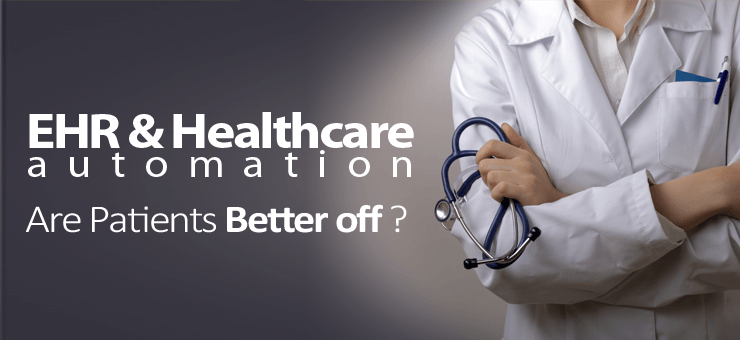The clock is ticking and the implementation deadline for ICD-10 and Meaningful Use Stage 2 for medical practitioners across the country is not very far away. In fact, there’s just over 12 months remaining for practices to put these in place and the need of the hour for them is to expedite the process of Read more…
EMR
Why do you need to have CureMD’s Discrete Reportable Transcription service?
The Background When the HITECH Act became law in 2009, it aimed to stimulate the adoption of Electronic Health Records (EHRs) across the health care industry; the clinical data gathered from these systems would aid in disease prevention in the coming years. By 2013, above 80% of all office-based physicians had adopted some variant of Read more…
EHR & Healthcare automation: Are patients better off?
Information Technology has completely revolutionized the way healthcare is being managed by providers nationwide. From a point where EMRs were just used to record patient vitals, the technology has expanded to include cross-platform information sharing, meaningful use of patient data, patient portals, electronic prescribing, electronic labs and many others. Where rising healthcare costs have been Read more…
The valuable asset you already have: Your EHR data
A recent survey by Accenture reveals that the adoption of Electronic Health Record (EHR) software and Health Information System (HIE) is rising in the United States. Despite the fact that most doctors agree that implementing an EHR system does not reduce their operational costs, they are embracing the technology because it helps them make better Read more…
The opportunity cost of a cheap EHR
The biggest selling points of many Electronic Health Record (EHR) software vendors, are improved patient experiences, increase in revenues, efficient workflows and the like. But investing in an EHR software, even if it is not an expensive one, can sometimes be quite taxing on small and medium sized practices with a small number of providers. So Read more…
Patient-Centric EHR Data: 4 Essential Characteristics
Over the last decade or so, Government investment in the healthcare sector has enabled more doctors and hospitals to shift to Electronic Health Records (EHRs) software, but it still remains a tough challenge. Many clinicians do not have access to usable data for a specific patient. Interoperability, the true objective of an EHR, can only Read more…
EHR – Usability, functionality or price?
Buying or switching to new and better Electronic Health Record (EHR) software is never an easy task. Physicians are flooded with many vendors, most of them offering plenty of features. It is common for physicians, hospital networks and medical centers to be unable to make the right choice because they are drawn into buying an Read more…
HIPAA Omnibus Rule – What now?
September 23, 2013 marked the end of the relaxation or grace period for the tougher, stricter implementation of the Health Insurance Portability and Accountability Act’s (HIPAA) Omnibus Rule. The Rule, which was enforced earlier in 2013 by the U.S. Department of Health and Human Services (HHS), gave practices across the country the new guidelines to Read more…
Reasons why physicians hesitate in switching to Electronic Healthcare Systems
The day I sold my green 1998 Buick Century to settle a college loan and instead bought a run-down beat old Geo Metro, which was a stick, by the way, my heart shattered into a million tiny pieces and within each piece there were a million more tiny pieces. I was devastated beyond consolation. It Read more…
What to consider prior to switching to EHRs?
When medical practices switch to Electronic Health Records (EHRs), the transition is never easy and can be quite cumbersome for many. It can make the practices suffer in their day-to-day operations and they can easily lose their primary focus: patient care. Not only it can take months to implement the system, it requires extensive training Read more…



